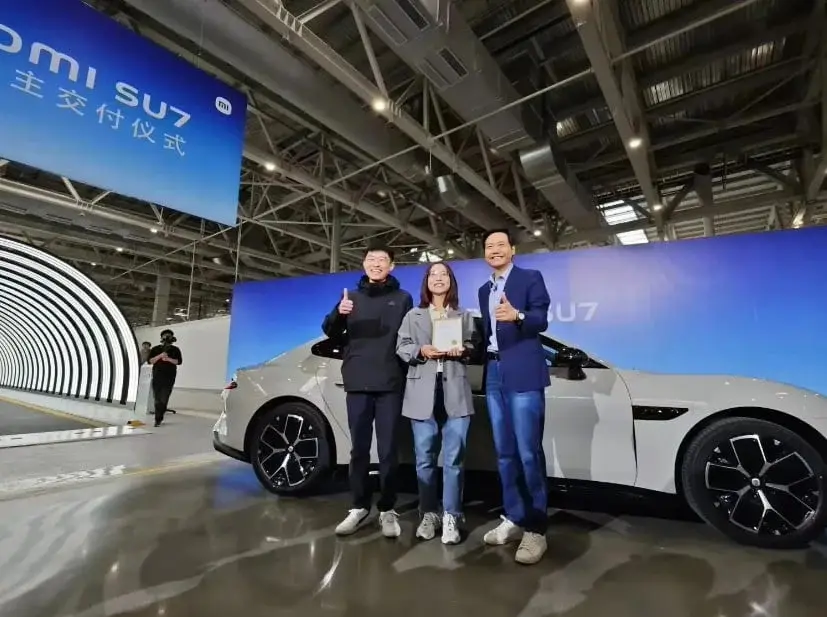According to recent reports, Xiaomi is facing challenges with “capacity bottlenecks” and supply chain issues in the production of its debut electric vehicle, the Xiaomi SU7. Despite encountering these obstacles, the company is actively working on resolving these concerns while also focusing on enhancing production efficiency.
Xiaomi’s Efforts to Boost SU7 Production
On April 3, Xiaomi conducted the inaugural batch delivery event for the Xiaomi SU7 at one of its automobile manufacturing plants in Yizhuang, Beijing. The Chinese publication Securities Times highlighted that Xiaomi is intensifying efforts to enhance production capacity, engage supply chain partners effectively, and ensure timely delivery of current and future orders.
Production Targets and Strategies
Initial production projections suggest that monthly output is poised to exceed 3,000 vehicles in March, rise to around 4,000 to 5,000 units in April, and eventually stabilize at 6,000 vehicles by the end of the year. Xiaomi Motors has reportedly urged suppliers to enhance production capabilities to achieve a monthly total of 10,000 units.

Focus on High-End SU7 Models
Particular attention is being directed towards scaling up production for the high-end Max version of the SU7. Sales figures for the SU7 range have surpassed initial expectations. Xiaomi’s CEO, Lei Jun, expressed optimism about the car’s success in December, acknowledging the potential variance in user preferences. However, the product’s reception has been positive thus far.
During the recent delivery event in China, Lei Jun announced that over 100,000 individuals have already selected the Xiaomi EV. Xiaomi Motors has confirmed that they are currently facing a surge in demand, with orders exceeding their production capacity.


Leave a Reply